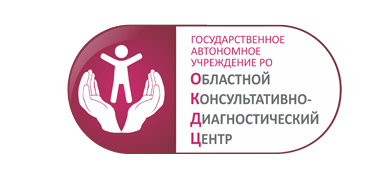Pediatrics
At our clinics, the advisory reception of children from the neonatal period is conducted by highly experienced doctors, who easily get into touch with little patients and their parents. The entrance to pediatric department from 130 M.Gorky Str.
- The patients are received by: pediatrician (from the neonatal period)
- surdologist (from the neonatal period)
- ENT-specialist (advising and surgical treatment of children from the age of 3. If it is necessary to perform the consulting with the younger children, you can refer to the operator of RDO to decide and issue on a case-by-case basis. Phoniatric attendance takes from the age of 8)
- dermatologist (from the neonatal period)
- urologist-andrologist (form the age of 12)
- pediatric neurologist (from the neonatal period)
- pediatric epileptologist (from the age of 3)
- allergologist-immunologist (from the neonatal period)
- pediatric endocrinologist (from the neonatal period)
- pediatric rheumatologist (from the age of 3)
- pediatric cardiologist (from the age of 3)
At RADC, we start electronic case record form for every child, so that the doctor has the complete information concerning heat status and can assess the changes. RADC is fitted with the necessary pediatric equipment; the blood sampling at laboratory is performed by experienced pediatric nurse.
Age criterions of pediatric examination:
Functional diagnostics:
- EEG, EEG monitoring (from the age of 1, assigned by RADC neurologist, neurologist-epileptologist)
- ECG from the age of 3 (younger may be agreed)
- REG — from the age of 3
- Holter monitoring — from the age of 5
- 24-hour blood pressure monitoring — from the age of 5
- Respiratory function (spirography) — from the age of 7
- Stimulation myography — from the age of 6
Endoscopic methods:
- FGDS — from the age of 3 (assigned by RADC pediatric gastroenterologists and pediatricians)
- Colonoscopy — from the age of 10 (assigned by RADC pediatric gastroenterologists and pediatricians)
Radiological methods:
- X-ray — (from the age of 1, assigned by RADC pediatricians)
- MRI — from the age of 3(with anesthetic support)
- SCT — from the age of 3
- Osteodensimetry — from the age of 5
Ultrasound investigation — from the neonatal period
Laboratory analyses are performed in fasting state.
Documents, necessary at reception and investigation:
- Passport of one of the parents
- Child’s birth certificate
- Child’s medical certificate of insurance
- If the child is guided by foster person — decision on guardianship establishment.
- If the child is accompanied by one of his parents or legal representatives (tutors) — there should be attested power of attorney from parents.
We can diagnose the majority of pediatric diseases:
- The diseases of gastrointestinal tract: laboratory tests, endoscopic investigations (FGDS, colonoscopy) with the use of specific pediatric equipment, the performance of ultrasound investigation of abdominal cavity organs of expert class ultrasound equipment; spiral computer tomography is performed for the main indications.
- Respiratory diseases: for the main indications – spiral computer tomography, spirography, diagnostics of persisting bacterial and viral infections.
- Endocrinologic pathology: assessment of hormonal state, carbohydrate metabolism, magnetic resonance imaging is performed for the main indications;
- Examination of sickly children: diagnostics of chronic viral and bacterial diseases, immune status assessment and correction
- Cardiovascular diseases and abnormalities: ECG, echocardiography with doppler sonography, diagnostic of causes for arterial hypertension in elder children: 24-hour analysis of ECG and the level of arterial hypertension, ultrasound dopplerography of visceral arteries, performance of exercise testing (BEM and treadmill test)
- Allergic diseases: laboratory diagnostics with allergen determination, performance of scarifying tests;
- Neural system pathology: performance of rheoencephalography, standard electroencephalography, and also with long background recording, for the main indications – spiral computer of magnetic resonance imaging including vascular mode;

